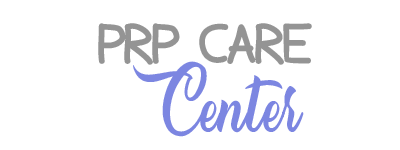Thyroid Hormone Replacement: Why Do You Need It?

Thyroid hormone therapy is the use of manmade thyroid hormones to raise abnormally low levels of natural thyroid hormones in the body. Thyroid hormone is usually given in pill form and is often used to treat an underactive thyroid that is secreting little or no thyroid hormones. The most commonly prescribed thyroid hormone replacement is pure synthetic thyroxine (T4).
Who needs thyroid hormone replacement therapy?
Thyroid hormone therapy is generally prescribed when your thyroid is not making enough thyroid hormone naturally. This is a condition referred to as hypothyroidism. Other reasons for using thyroid hormone therapy may rarely include:
- to control the growth of the enlarged thyroid gland (also called goiter);
- to control the growth of nodules on the thyroid gland;
- treatment after the removal of the thyroid for benign or malignant disease;
- after treatment of hyperthyroidism by radioactive iodine ablation.
How is thyroid hormone replacement therapy dosage determined?
Healthcare providers do careful blood testing to find the proper dose of hormone replacement therapy for each person. The blood tests reveal levels of thyroid hormones in the blood, as well as thyroid-stimulating hormone (TSH) released by the pituitary gland.
The pituitary gland plays an integral role in the functioning of the thyroid gland. It controls how much thyroid hormone is released by making TSH that “stimulates” the thyroid. Increased levels of TSH may indicate that you have an underactive thyroid or that thyroid hormone replacement needs to be increased.
You will have lab tests to measure levels of thyroid hormones and TSH. Hypothyroidism can be a progressive disease. This needs dosage increases over time.
To make sure that your thyroid hormone replacement works properly, consider the following recommendations:
- Maintain regular visits to a healthcare provider.
- Take your thyroid medicine at least 1 hour before breakfast and any calcium or iron medicines you may take. Or take at bedtime, or at least 3 hours after eating or taking any calcium or iron medicines.
- Inform a healthcare provider of your thyroid hormone treatment before beginning treatment for any other disease. Some treatments for other conditions or diseases can affect the dosage of thyroid hormone therapy.
- Tell a doctor about any new symptoms that may arise.
- Tell a doctor about your thyroid condition and medicine dosage.

What is the thyroid gland?
The thyroid gland is a butterfly-shaped endocrine gland that is normally located in the lower front of the neck. The thyroid’s job is to make thyroid hormones, which are secreted into the blood and then carried to every tissue in the body. Thyroid hormone helps the body use energy, stay warm, and keep the brain, heart, muscles, and other organs working as they should.
How is the dose of thyroid hormone chosen?
When someone is first started on thyroid hormone the initial dose is carefully selected based on information such as a person’s weight, age, and other medical conditions. The dose will then need to be adjusted by a physician to keep the thyroid function normal. The physician will make sure the thyroid hormone dose is correct by performing a physical examination and checking TSH levels.
There are several brand names of thyroid hormones available. Although these all contain the same synthetic T4, there are different inactive ingredients in each of the brand names. In general, it is best for you to stay on the same brand name. If a change in the brand name is unavoidable, you should be sure a physician is aware of the change, so that your thyroid function can be rechecked. If your pharmacy plan changes your thyroid hormone to a generic preparation, it is important for you to inform a physician.
How do I take thyroid hormone?
Thyroid hormone is easy to take. Because it stays in your system for a long time, it can be taken just once a day, and this results in very stable levels of thyroid hormone in the bloodstream. When thyroid hormone is used to treat hypothyroidism, the goal of treatment is to keep thyroid function within the same range as people without thyroid problems.
Keeping the TSH level in the normal range does this. The best time to take thyroid hormone is probably first thing in the morning on an empty stomach. This is because food in the stomach can affect the absorption of thyroid hormones.
However, the most important thing is to be consistent, and take your thyroid hormone at the same time, and in the same way, every day. If you are taking several other medications, you should discuss the timing of your thyroid hormone dose with a physician. Sometimes taking your thyroid hormone at night can make it simpler to prevent your thyroid hormone from interacting with food or other medications.
Do not stop your thyroid hormone without discussing this with a doctor. Most thyroid problems are permanent, and therefore most patients require thyroid hormone for life. If you miss a dose of thyroid hormone, it is usually best to take the missed dose as soon as you remember.
It is also safe to take two pills the next day; one in the morning and one in the evening. It is very important that your thyroid hormone and TSH levels are checked periodically, even if you are feeling fine so that your dose of thyroid hormone can be adjusted if needed.

What about natural thyroid hormones?
Desiccated (dried and powdered) animal thyroid, now mainly obtained from pigs, was the most common form of thyroid therapy before the individual active thyroid hormones were discovered. People can still buy it over the Internet — legally if it’s sold as a food supplement, but illegally if it’s sold as a medicine. It is also available still as a prescription.
Since pills made from animal thyroid are not purified, they contain hormones and proteins that never exist in the body outside of the thyroid gland. While desiccated thyroid contains both T4 and T3, the balance of T4 and T3 in animals is not the same as in humans, so the hormones in animal thyroid pills aren’t necessarily “natural” for the human body.
Further, the amounts of both T4 and T3 can vary in every batch of desiccated thyroid, making it harder to keep blood levels right. Finally, even desiccated thyroid pills have chemicals (binders) in them to hold the pill together, so they are not completely “natural”. Desiccated animal thyroid is rarely prescribed today, and there is no evidence that desiccated thyroid has any advantage over synthetic T4.
Will thyroid hormone help me if I have hypothyroid symptoms but normal thyroid hormone levels?
Some people with normal thyroid blood tests have symptoms that are similar to symptoms of hypothyroidism. Several scientific studies have looked at whether T4 therapy would be of benefit to patients with symptoms that overlap with hypothyroid symptoms and normal thyroid function. In all cases, there was no difference between T4 and a placebo (sugar pill) in improving symptoms or well-being.
Feel free to contact us here and ask any questions you are bothered with, we’ll be happy to provide a free qualified consultation.

